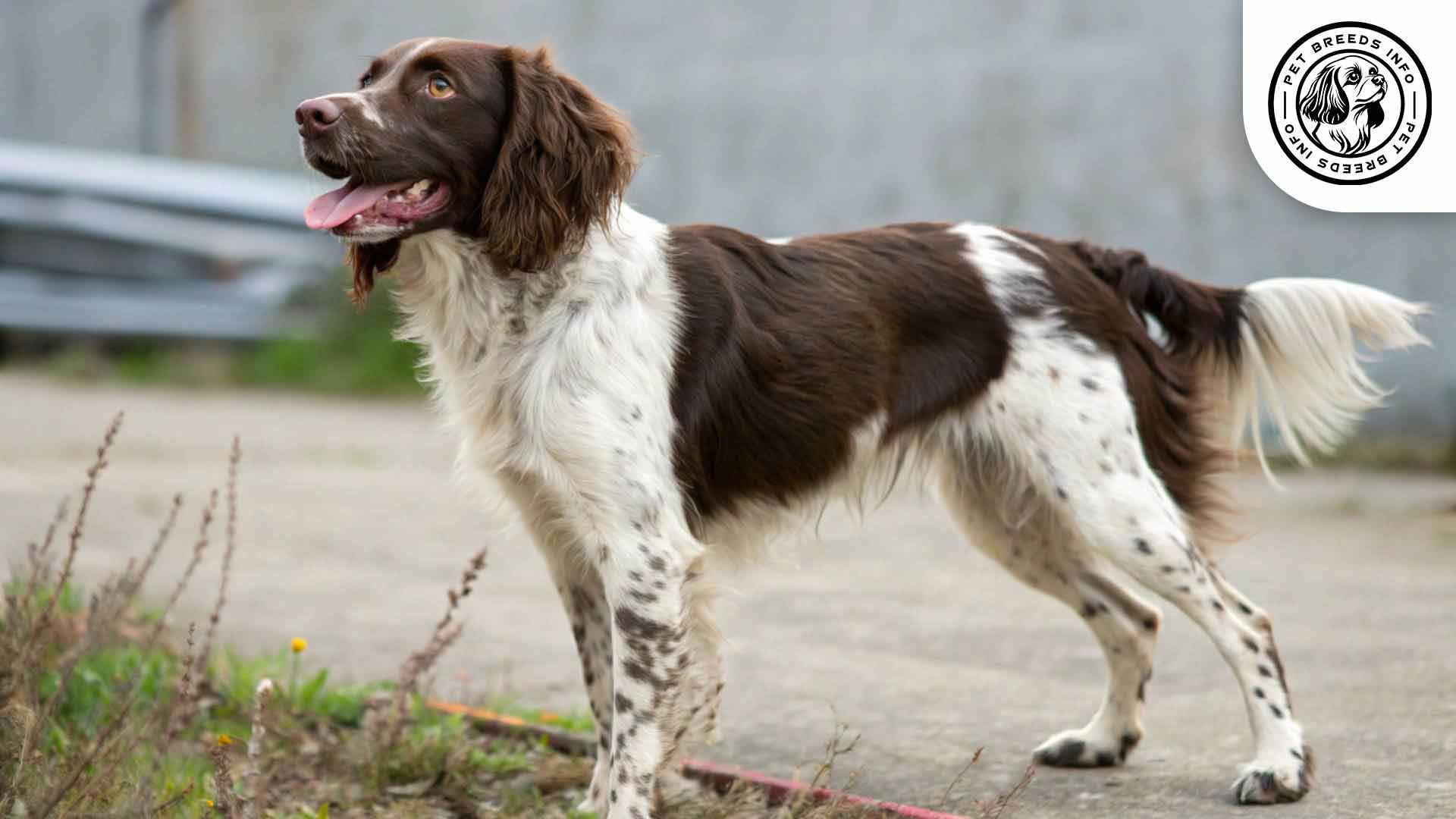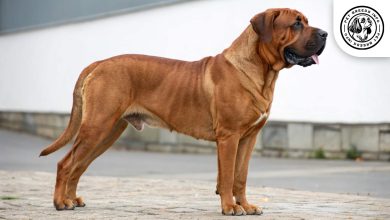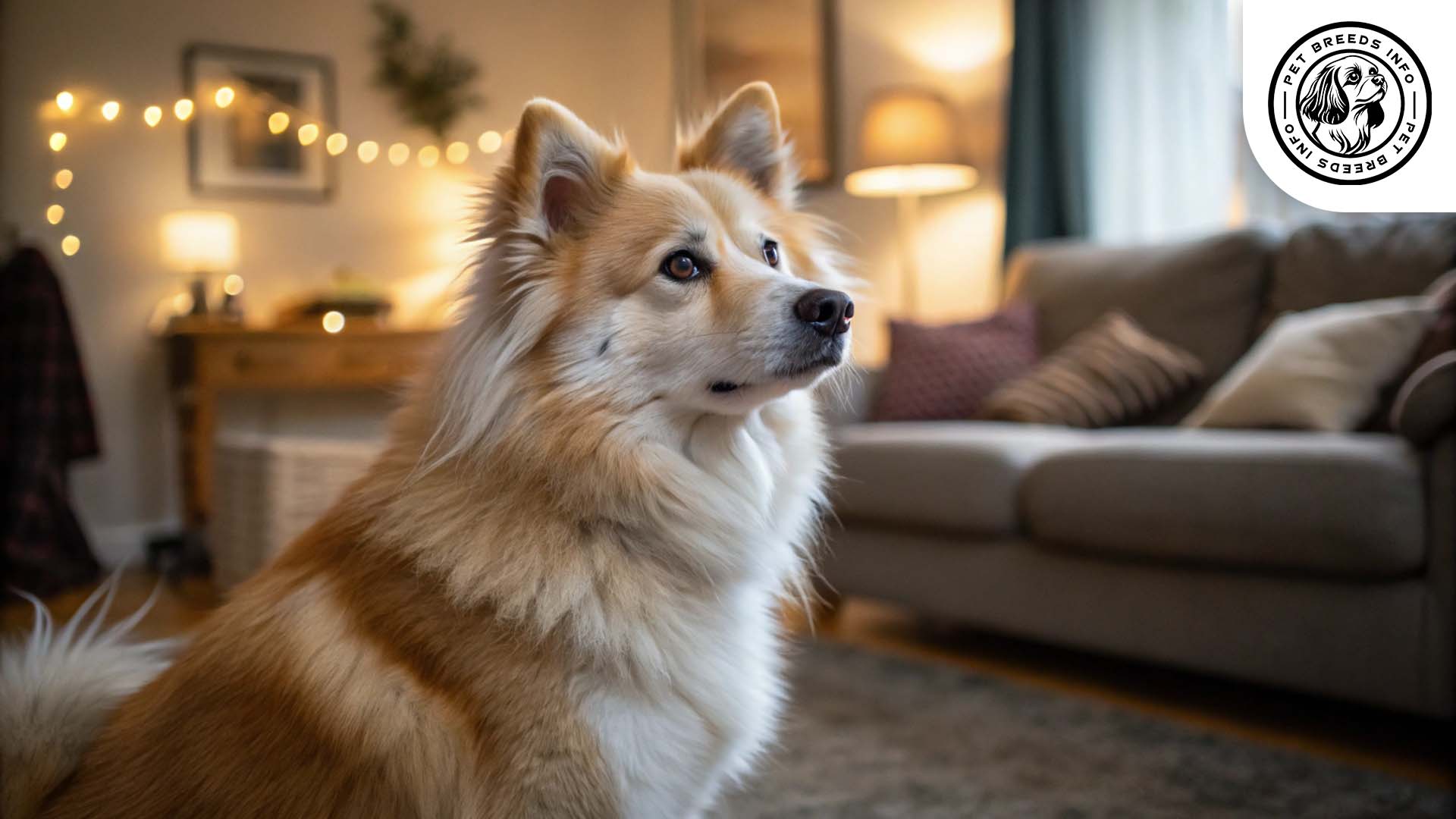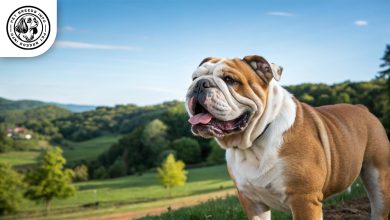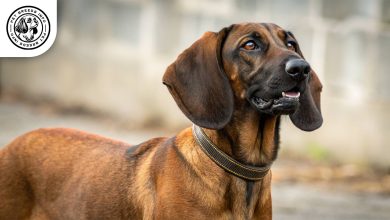Small Munsterlander Dog Breed: Size, Price & Personality
General Introduction of the Breed
The Small Munsterlander Pointer, known in German as “Kleiner Münsterländer,” is a versatile hunting dog originating from Germany. This breed has been developed for centuries as an all-around hunting companion, excelling in tracking, retrieving, and pointing.
Originating in the Münsterland region of Germany, this breed was refined for its intelligence, endurance, and strong hunting instincts. It is closely related to other pointers and spaniel-type breeds and has gained popularity among hunters and families alike.
Table of Contents
| Weight | 40-60 pounds (males), slightly less for females |
| Lifespan | 12-14 years |
| Diet | Balanced diet with high-quality dry kibble, raw, or natural food. Avoid processed human foods, excessive fats, and chocolate. |
| Care | Regular exercise, weekly brushing, bathing when necessary, regular ear cleaning, nail trimming, and dental care. |
| Health | Generally healthy, but prone to hip dysplasia, ear infections, and certain genetic eye disorders. |
| Color | Brown and white, often with roaning or ticking patterns. |
| Nature | Intelligent, eager to learn, high energy, friendly, affectionate, strong prey drive. |
| Price | $1,000 to $2,500 |
Physical Characteristics
The Small Munsterlander Pointer is a medium-sized breed with a well-balanced and athletic build. Males typically stand between 20.5 to 22 inches (52-56 cm) tall and weigh between 40-60 pounds (18-27 kg), while females usually measure 19.5 to 21 inches (50-54 cm) and weigh slightly less.
This breed has a dense, medium-length coat that provides protection against harsh weather. The coat is wavy or straight and comes in a combination of brown and white, often with roaning or ticking patterns.
The breed has expressive, dark brown eyes that give it an intelligent and eager expression. The ears are medium-sized, set high, and hang close to the head, covered with feathered fur. The tail is moderately long and feathered, carried slightly raised when the dog is active.
Read More: Skye Terrier Dog
Personality and Temperament
The Small Munsterlander Pointer is highly intelligent and eager to learn, making training relatively easy. However, it requires mental stimulation to keep it engaged and happy.
This breed has high energy levels and requires daily physical activity, including running, playing, or working in the field. It forms strong bonds with its family and thrives in companionship.
It is friendly and affectionate with its owners and gets along well with children. Due to its hunting background, it has a strong prey drive, which may require early socialization when introduced to other small pets.
The breed is adaptable and responds well to a structured environment but can be sensitive to sudden changes in routine.
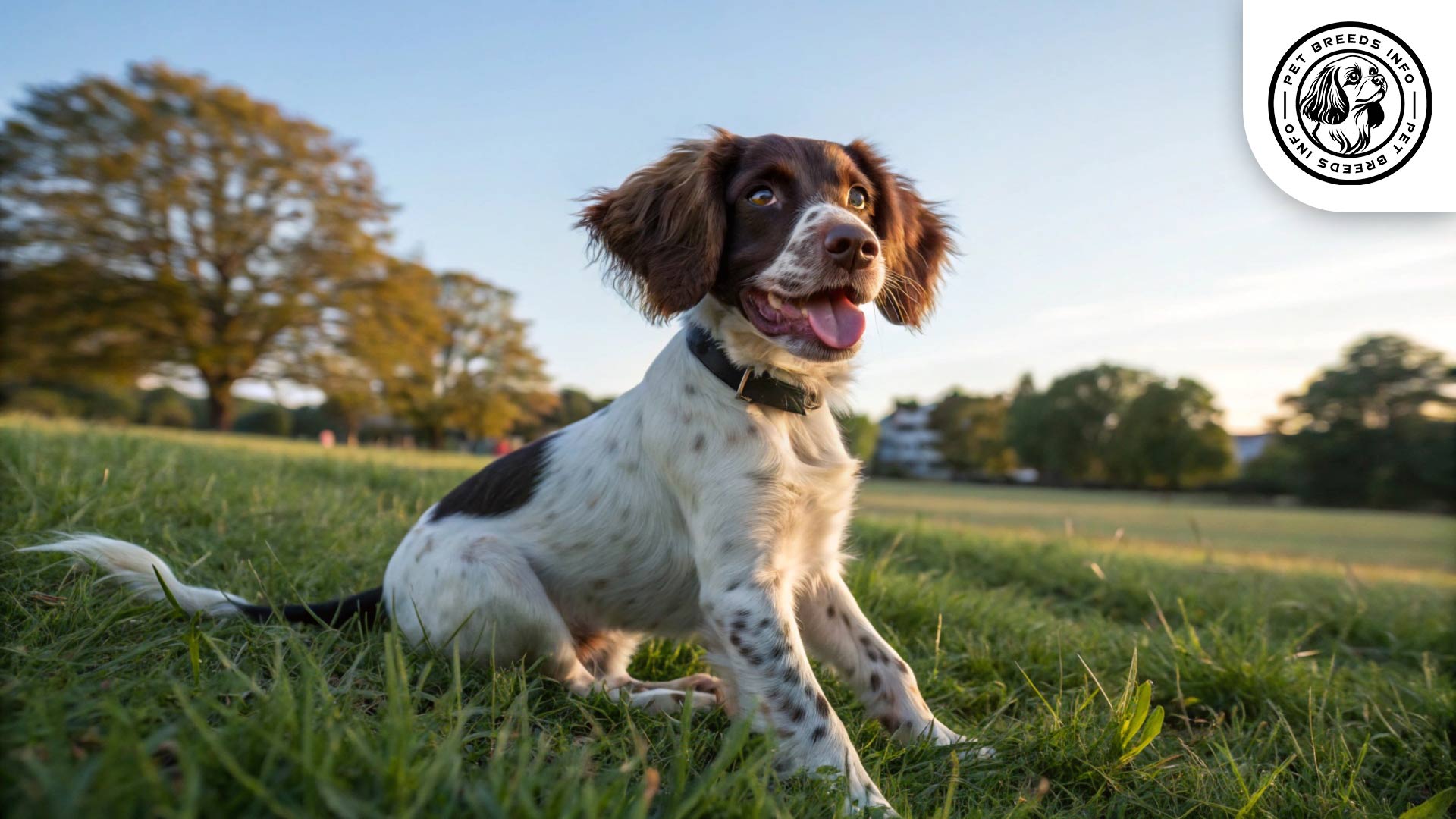
Care and Maintenance Requirements
The Small Munsterlander Pointer needs regular exercise, making it best suited for homes with yards or active owners. Long walks, hikes, and interactive play are necessary to keep it happy.
While it can adapt to an apartment, regular outdoor activities are crucial for its well-being.
The coat requires weekly brushing to prevent matting and control shedding. Bathing should only be done when necessary. Regular ear cleaning, nail trimming, and dental care should be maintained to ensure good health.
The breed can handle cool temperatures well but may need protection in extreme cold or heat.
Diet and Nutrition
A balanced diet with high-quality dry kibble, raw, or natural food is recommended. Protein and fat levels should match the dog’s activity needs.
Owners should avoid feeding processed human foods, excessive fats, and chocolate, which can be toxic to dogs.
Portion sizes should be adjusted according to age, activity level, and individual metabolism. Typically, two meals per day are sufficient.
Read More: Siberian Husky Dog
Health and Common Medical Issues
The Small Munsterlander Pointer is a generally healthy breed with an average lifespan of 12-14 years.
Some common health concerns include hip dysplasia, ear infections (due to floppy ears), and certain genetic eye disorders. Routine veterinary check-ups and vaccinations are necessary for maintaining good health.
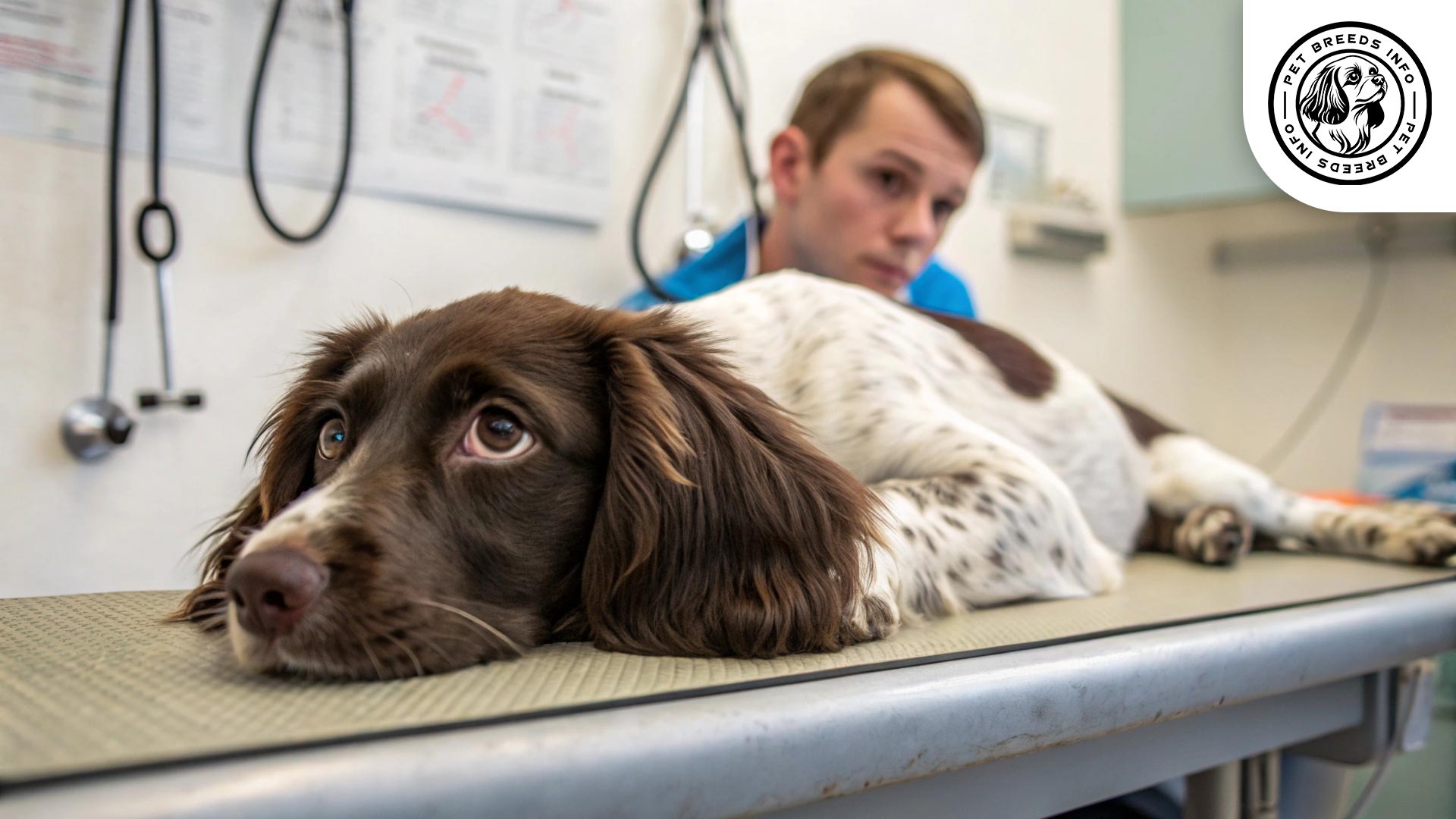
Training and Behavior Management
This breed is intelligent and eager to please, making training relatively easy with consistent positive reinforcement techniques.
Socialization from an early age is important to ensure the dog develops good manners with strangers and other animals.
Firm but gentle training works best. Harsh methods should be avoided as they can damage trust and affect the dog’s confidence.
Interaction with Other Animals and Humans
The Small Munsterlander Pointer interacts well with children and enjoys being part of a family.
Its behavior toward other pets depends on proper socialization, but its strong hunting instincts may make it prone to chasing small animals.
It is best suited for active individuals or families that can provide companionship and outdoor activities.
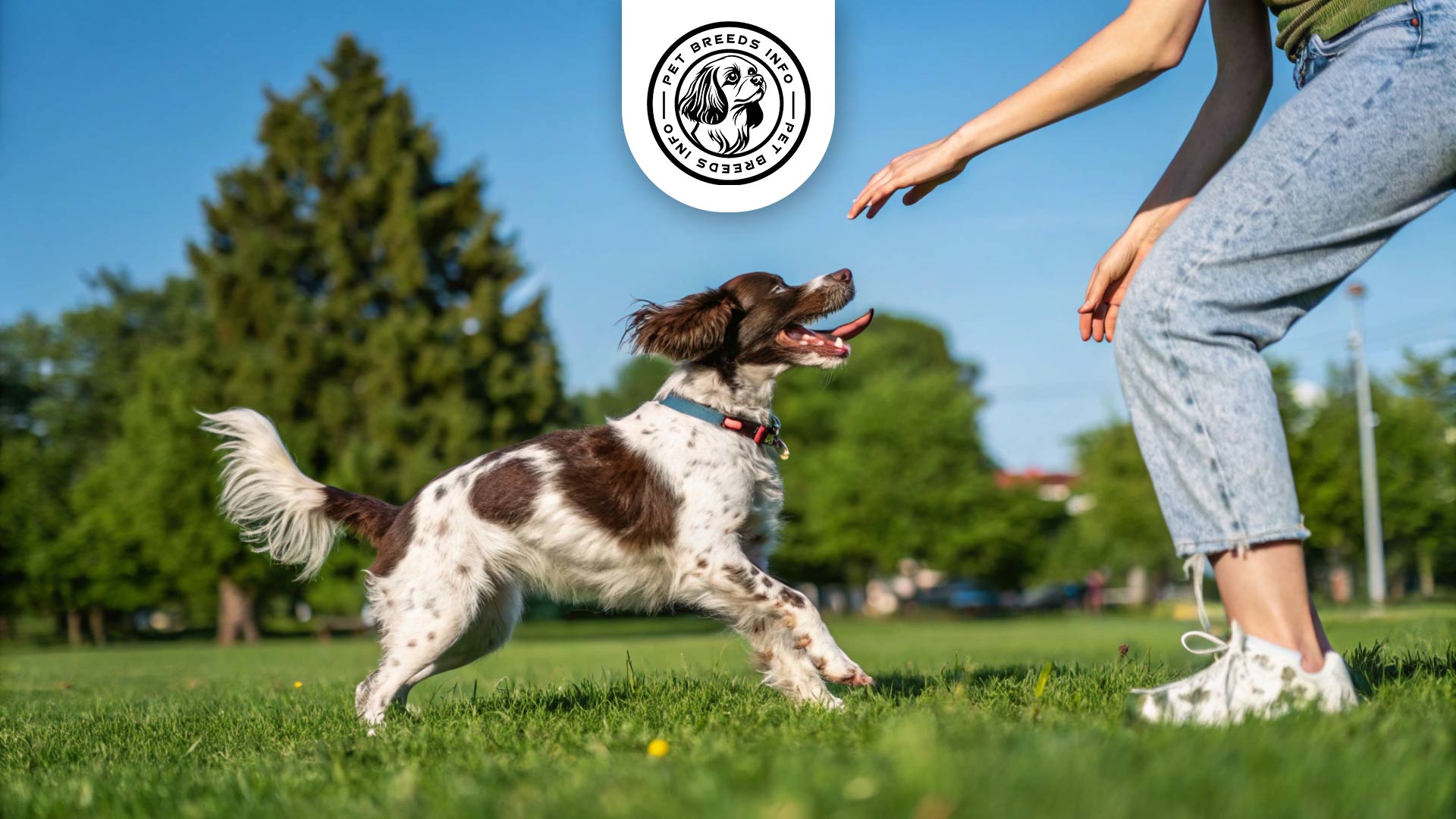
Price and Availability
The price of a Small Munsterlander Pointer puppy varies based on factors such as lineage and breeder reputation, typically ranging from $1,000 to $2,500.
Reputable breeders, hunting clubs, and adoption centers are the best places to acquire a well-bred puppy.
Prospective owners should research breeders carefully to ensure they follow ethical breeding practices and provide health guarantees.
Read More: Silky Terrier Dog
Conclusion and Final Thoughts
The Small Munsterlander Pointer is an exceptional breed for active families and hunting enthusiasts.
It thrives in homes where it can engage in regular outdoor activities and receive plenty of attention.
Potential owners should consider the breed’s energy levels, training requirements, and social traits before making a decision. With proper care, training, and attention, this breed makes a loyal and affectionate companion.
FAQ
What is the average lifespan of a Small Munsterlander Pointer?
The average lifespan of a Small Munsterlander Pointer is 12-14 years.
What are the common health issues for Small Munsterlander Pointers?
Common health concerns include hip dysplasia, ear infections (due to their floppy ears), and certain genetic eye disorders.
What type of diet is recommended for Small Munsterlander Pointers?
A balanced diet with high-quality dry kibble, raw, or natural food is recommended. Avoid feeding them processed human foods, excessive fats, and chocolate.
How much exercise does a Small Munsterlander Pointer need?
Small Munsterlander Pointers have high energy levels and require daily physical activity, including running, playing, or working in the field.
What is the typical price range for a Small Munsterlander Pointer puppy?
The price of a Small Munsterlander Pointer puppy typically ranges from $1,000 to $2,500, depending on factors such as lineage and breeder reputation.
